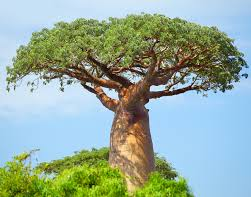Securing the History of Self: What of History’s Connection and Importance?
- By kwende ukaidi
- •
- 19 Sep, 2024
- •
Celebrating the Great Afrikan History Continuum

Undoubtedly, Afrikan souls from
throughout their continuum have established magnificently endowed and powerful
historical experience. At the same time, this primary people of creation have –
as a natural norm – been continually and deeply connected to that experience in
recall and living. So what makes the connection of Afrikan people to their
history of vital importance? Perhaps a contemporary mainstream definition of the
word connection can provide some indication. Accordingly, one source suggests
that connection is:
“the act of connecting: the state of being connected”.
This may seem facile at a cursory glance, but in relation to Afrikan people and their history the connectedness is deep and profound. Indeed, one may say that in their connection to their history Afrikan souls are connecting to themselves. In other words, Afrikan history is a vital part Afrikan souls being at one with themselves or realising their whole.
Another mainstream source, provides the following detail in respect of history’s importance:
“History is important because it helps us to understand the present. If we will listen to what history has to say, we can come to a sound understanding of the past that will tell us much about the problems we now face”.
Not only does Afrikan history hold importance in relation to recollection of the past to inform the present, it also informs the future. Further, Afrikan history to Afrikan people is not merely about passive engagement. Rather, Afrikan history is made, is being made and will continue to be made by Afrikan souls. In this, Afrikan history is an unending continuum encompassing that of the past, present and future. In addition, whilst many descriptions on the use of history adopt a posture of problem solving (which can indeed be a part of necessary engagement), for the Afrikan history has its mainstay, upright and empowering overarching thrust for Afrikan souls to realise their progressive and upright life necessaries and certainties. Here, Afrikan history details the efforts Afrikan people determine for themselves in service of their ascension whether there is a ‘problem’ to solve or not.
It may then be useful to adapt and combine the sourced detail to bring focus specifically to the Afrikan experience. In so doing, the following may be stated:
“Afrikan history to Afrikan people represents a naturally inseparable connection of Afrikan souls to themselves in wholeness of the experience they determine to be – then, now and tomorrow – in service of their ascension and security. Afrikan self-determined experience of the past naturally informs the present. Just as the Afrikan self-determined experience of the present, together with the experience of the past naturally informs the Afrikan future. The act of Afrikan souls connecting with their history is far from being a one-off or one-time discrete engagement. Rather, the connection and importance of Afrikan history to Afrikan people is consistent living interwoven flow throughout the rhythmic cycles of Afrikan life into eternity”.
Unfortunately, others that mean the Afrikan ill, may take it upon themselves to attempt to sever, destroy or deny the natural connection Afrikan souls have with their history and all the important empowerment for Afrikan ascension that comes from this. If others that mean the Afrikan ill were to have their way, the Afrikan would surely become an ‘object’ dislocated from self and fragmented from meaningful wholeness to be disused at will or worse. Of course, Afrikan souls ought not succumb to seeing disconnection from their history as some sort of 'norm'. Further, this soul people surely ought to avoid becoming the history denial 'agents' of others that mean the Afrikan ill by proxy.
Thus, it is vital the Afrikan souls whether located here, there or elsewhere restore self-knowingness and reconnect to their history in living engagement of ascension. This time securing the connection to their history into eternity.
Afrikan Historia Msimu is an observance period for the duration of the tenth month of the year (so-called October). This is a special time for learning, growth and development of the Afrikan experience in the world. It is a time of spiritual and cultural elevation as Afrikan history is restored to fabric of life in the living knowingness of the then, the now and tomorrow. Great ones of the Afrikan journey are highlighted and the symbols relevant to the time invigorate life in the imperative onward flow of global Afrikan ascendancy. This wonderful observance is a part of the cultural calendar of the Universal Royal Afrikan Nation (URAN).
The Universal Royal Afrikan Nation (URAN) is an Afrikan-centred spiritual and cultural mission for ascendancy that embodies living spiritually and culturally rooted life. To find out more about URAN and its spiritual-cultural mission for liberty and nationhood click here. The exquisite URAN pendant can be obtained online by clicking here.
In his capacity as an Afrikan-centred spiritual cultural practitioner this author is available for further learning in this regard and also for the carrying out of ceremonies such as naming and name reclamation. For details please click here.
Afrikan World Studies programmes are important forms of study in understanding the Afrikan experience. There are a range of subjects covered on these programmes including History, Creative Production, Psychology and Religion. To find out more about these learning programmes please click here. For the video promo for these learning programmes click here.
At nominal cost, also consider acquisition of an a4 laminate poster of articulations by this author when visiting the Yemanja-O establishment to enrol, consult, learn, gather or otherwise.
Also, visit www.u-ran.org for links to Afrikan liberation Love radio programme on Universal Royal Afrikan Radio online.
